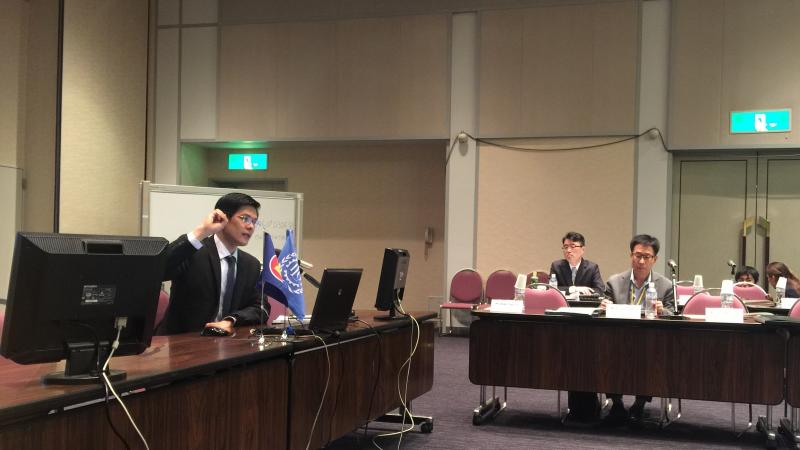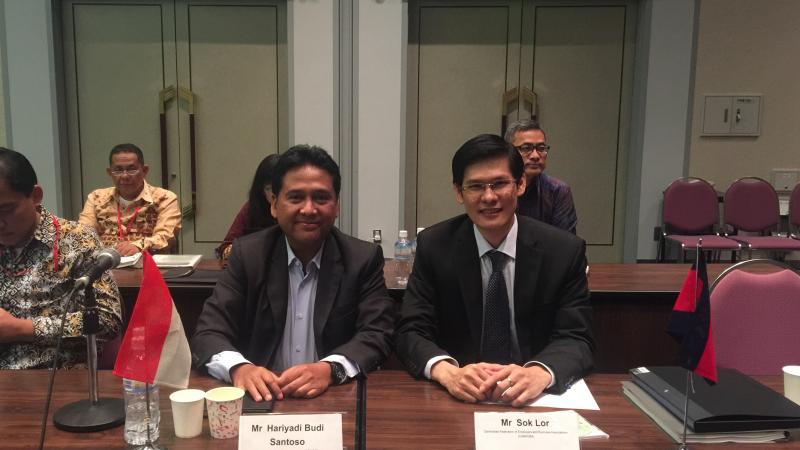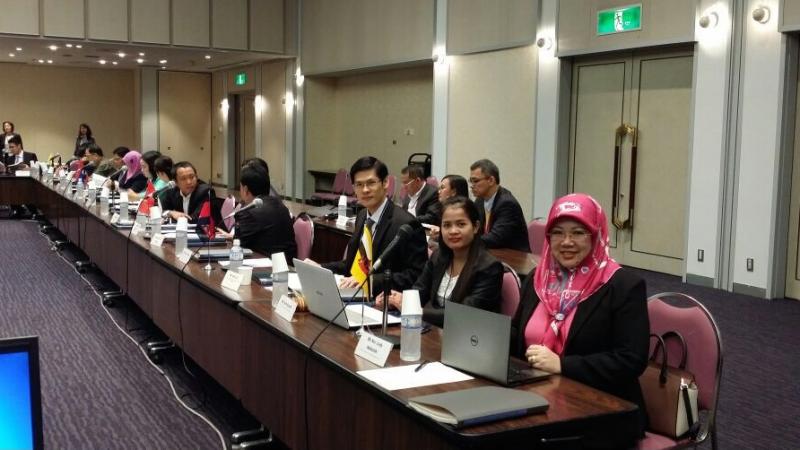Improved Social Dialogue Key to Greater Industrial Relations Stability in Cambodia and the ASEAN Region
Most countries among the Association of Southeast Asian Nations (ASEAN) have varied yet similar challenges in industrial relations, which is known as the relationship between employers and their employees. If not properly managed, the relationship can become tense, leading to industrial disputes and labor strikes that damage the productivity and income of employers and workers.
Given the importance of good industrial relations in socio-economic development among ASEAN countries, the International Labour Organization in cooperation with the Ministry of Health, Labor, and Welfare of Japan regularly organizes the tripartite regional seminar on industrial relations in the ASEAN region. On 14 – 15 September 2016, the seventh session of the regional seminar, held at Makuhari International Training Center in Chiba-Prefecture, Japan, was organized to explore and assert emphasis on the role of social dialogue in building trust and promoting effective industrial relations across the ASEAN countries.
Represented the federation of employers and business associations in Cambodia at the regional seminar was Sok Xing & Hwang Managing Director who delivered and discussed the status, progress, challenges, and future direction of social dialogue mechanisms in Cambodia. According to Mr. Sok Lor, following the 2014 general labor strike over the minimum wage in the garment and footwear industry, the industrial relations situation in Cambodia has become stabilized and returned to normal thanks to the strategic introduction of structured and criteria-based minimum wage negotiation process by the Royal Government of Cambodia and the May 2016 passage of the Trade Union Law that brings about greater regulation and enforcement against unfair labor practices on both employers, workers, and trade unions.
In Cambodia, the degree of effectiveness of ‘social dialogue’ – defined as discussions, consultations, and/or negotiations between employers and their workers towards achieving stable state of industrial relations – differ, subject to the hierarchical levels of such dialogue. While the social dialogue at the national level has seen increased effectiveness in its process in recent years, i.e. the tripartite Labor Advisory Committee administered by the Ministry of Labor and Vocational Training, the picture at the sectoral and enterprise levels are less clear. At level of the key garment and footwear industry, the Memorandum on Promoting Industrial Relations in the Garment Industry, which took effect from 2013 through October 2014, has not been renewed as the industry reportedly lacks the confidence in the enforcement of key commitments set out therein, particularly the trade unions’ commitment to ‘no strike’ in exchange for binding arbitration on rights disputes. At the enterprise level, while there is presence of legally-mandatory shop stewards at enterprises, the lack of central data has posed difficulty for policy makers to assess and apprehend the extent of and key impediments to enterprise-based social dialogue mechanisms such as collective bargaining agreements or labor-management committees.
As social dialogue plays a vital role in nurturing and cultivating trust and relationship among employers and their workers, Mr. Sok Lor recommends that concerted efforts among Royal Government of Cambodia, employers, and trade unions to develop and implement in good faith social dialogue mechanisms at all structures, including the sectoral and enterprise levels.



